1. “Bless your heart” – Southern United States
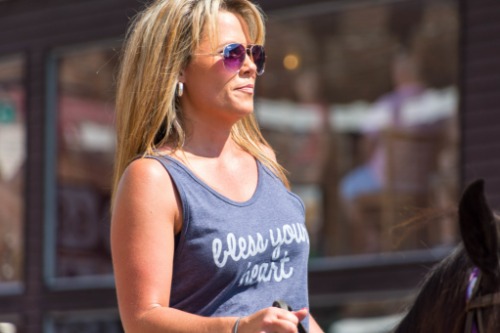
If you’ve spent any time in the American South, you’ve probably heard someone say, “Bless your heart.” On the surface, it sounds like a gentle, grandmotherly expression of care. And sometimes it is—especially if you’ve just gone through something difficult. But in the right tone, it’s a subtle way of saying, “You poor thing, you really messed that up.”
The phrase sticks around because it’s wonderfully versatile and wrapped in politeness. You can use it sincerely when consoling someone who’s grieving or sarcastically when someone does something spectacularly silly. Southerners have perfected the delivery so it’s almost impossible to tell right away which meaning is intended. That ambiguity is part of its charm—and its danger.
2. “Well, look what the cat dragged in” – Rural Midwest

This one sounds like something you’d say to your worst enemy, but in many Midwestern small towns, it’s a warm greeting for someone you haven’t seen in a while. It’s usually paired with a smile or a chuckle to show you’re happy they showed up. The “insult” part—comparing your friend to a bedraggled cat—is just local humor. In these communities, teasing is a sign of affection.
The phrase probably gained popularity in farming and rural areas where cats actually did drag unfortunate critters to the porch. Over time, it morphed into a way of playfully acknowledging someone’s arrival. When someone says it to you at a small-town diner, they’re not judging your appearance—they’re marking your presence as a pleasant surprise. The Midwest has a knack for making even backhanded remarks feel homey.
3. “You ain’t right” – Appalachian Region

“You ain’t right” might sound like you’re being told you’re fundamentally flawed. In reality, it’s often just a way of saying you’re a little eccentric—in a good way. People in the Appalachian region use it affectionately for friends who tell wild stories or make unusual choices. It’s less about judgment and more about celebrating quirks.
The delivery matters—if it’s said with a laugh or a shake of the head, you’re in safe territory. This phrase has roots in communities where individualism is prized but gently teased. It’s a way to say, “You’re not like everyone else, and we love you for it.” But if it’s said with no smile… that’s when you should worry.
4. “Look who decided to show up” – Urban Northeast

In places like New York, Boston, or Philly, greetings can sound suspiciously like accusations. “Look who decided to show up” is a classic. It might sound like someone’s angry you’re late, but often it’s just a snappy way of saying hello. City-dwellers tend to fold their warmth into quick, sharp banter.
This greeting works because it’s efficient—it acknowledges your presence, hints that you’ve been missed, and gives you a little ribbing all at once. The tone is almost always light, though the fast pace of speech might make it seem otherwise to outsiders. If you hear it in a deli line or at a family gathering, it’s a sign you’re part of the inner circle. The Northeast loves its people, but it loves them with a side of sass.
5. “What’s your problem?” – Chicago Neighborhoods
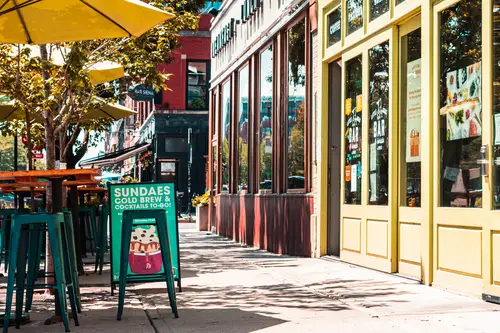
In many places, “What’s your problem?” would be the start of a fight. In certain Chicago neighborhoods, it’s just shorthand for, “Hey, what’s going on with you?” The tone is key—said with a grin, it’s simply a greeting between friends who thrive on sarcastic exchanges. It’s rooted in the city’s working-class conversational style.
Chicagoans often greet each other with phrases that feel confrontational but are really just playful. It’s about testing your rapport—if you can give it back, you’re in the club. Outsiders might find it abrasive, but locals know it’s a form of verbal handshake. Context and relationship make all the difference here.
6. “Don’t be a stranger” – Pacific Northwest
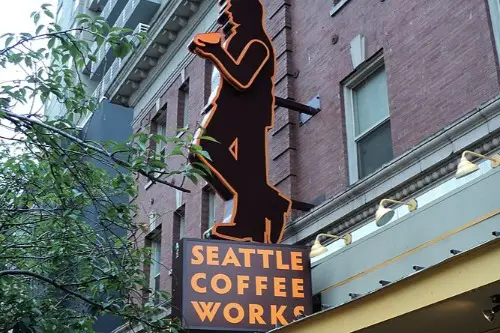
While “Don’t be a stranger” might sound like you’ve been neglecting someone, it’s actually a kind-hearted invitation to stay in touch. It’s common in the Pacific Northwest, where social interactions can be warm but reserved. The phrase acknowledges that people can drift apart in busy lives. It’s a reminder that the door’s always open.
It’s especially common at the end of a conversation, almost like a verbal wave goodbye. The “insult” element is mild—pointing out that you haven’t been around much—but it’s softened by genuine goodwill. Locals like it because it’s informal but sincere. It’s their way of saying, “You’re missed—let’s fix that.”
7. “You clean up nice” – Southern Plains
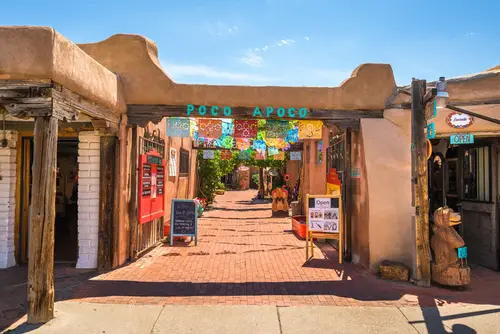
Hearing “You clean up nice” for the first time can feel like a backhanded slap—it suggests you don’t usually look so great. But in the Southern Plains, it’s a straightforward, if awkwardly worded, compliment. People often say it at weddings, graduations, or Sunday services. It’s meant to notice and appreciate the effort you put into dressing up.
This phrase likely comes from communities where daily life is rural and practical, meaning work clothes are the norm. When someone shows up looking sharp, it’s a pleasant surprise worth pointing out. The “nice” part is always genuine, even if the “you clean up” part sounds questionable. It’s simply local shorthand for, “Wow, you look fantastic today.”
8. “Aren’t you a sight” – Ozarks
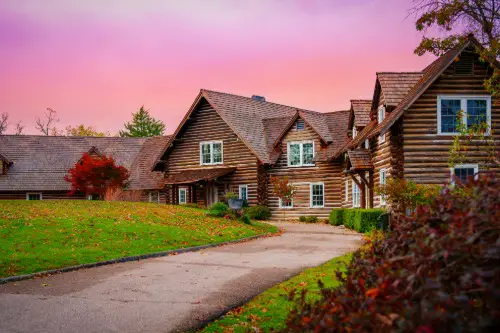
At first blush, “Aren’t you a sight” could be taken as a jab about your appearance. But in the Ozarks, it’s an exclamation of happy surprise. It’s most often used when someone hasn’t been seen in ages. The “sight” here is more about presence than looks.
This phrase taps into the region’s storytelling traditions. People in the Ozarks like colorful expressions that might make outsiders pause. The slightly old-fashioned ring of it gives the greeting charm and personality. It’s less about judging how you look and more about celebrating that you’re here at all.
9. “Hey, trouble” – Gulf Coast
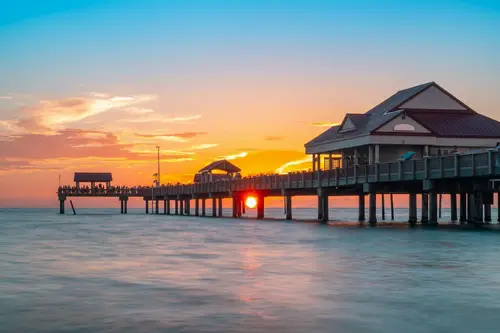
Being called “trouble” might make you wonder what you’ve done wrong. On the Gulf Coast, though, it’s often just a flirty or playful hello. Friends, bartenders, and shopkeepers might use it to greet someone known for a lively personality. It signals familiarity and a sense of fun.
This greeting works because it creates a mini-story—you’re the “trouble” everyone enjoys having around. It’s also a way to acknowledge that you bring energy to a room. The name might sound accusatory, but it’s really an affectionate nod to your charisma. Think of it as a verbal wink.
10. “There they are” – Upper Midwest
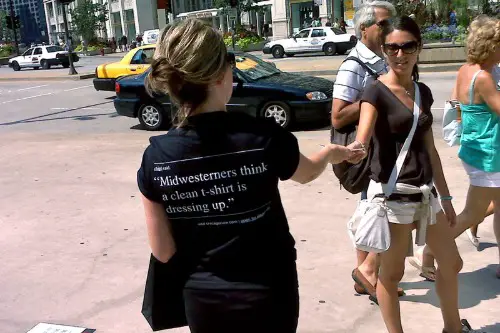
“There they are” sounds like something you’d say after finally finding a lost object. But in the Upper Midwest, it’s a friendly, slightly theatrical greeting for a person who just arrived. The emphasis is on “there,” drawing out the words for effect. It turns your arrival into a small event.
This phrase fits well with Midwestern modesty—it’s a way to show enthusiasm without over-the-top praise. It works at family reunions, community events, or even just when someone comes into the local bar. It says, “We’re glad you’re here,” without actually using those exact words. The understated delivery makes it feel genuine.
11. “Where you been hiding?” – California Central Valley
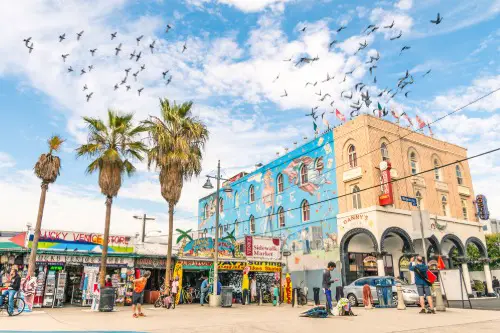
If someone asks, “Where you been hiding?” you might think they’re accusing you of avoiding them. In California’s Central Valley, it’s simply a friendly acknowledgment that it’s been a while since you last met. The phrase often comes with a smile and a hug. It’s more reunion than interrogation.
This greeting reflects the Valley’s small-town-in-a-big-state feel. People notice when someone’s been absent from the social scene. The “hiding” part is just playful exaggeration, not a real accusation. It’s an easy icebreaker that jumps straight into catching up.
12. “What are you doing here?” – New Orleans

Elsewhere, “What are you doing here?” might sound like you’re not welcome. In New Orleans, it can be a warm, surprised hello—especially in a bar, parade, or festival setting. It’s often followed by laughter and an offer of a drink. The question is rhetorical; the real message is, “I’m glad you’re here.”
This greeting fits the city’s flair for the dramatic. New Orleanians like to turn even simple interactions into little performances. It’s a mix of curiosity, excitement, and theatrical disbelief. Far from being a brush-off, it’s an invitation to join the fun.
13. “Well, aren’t you fancy” – New England Coast

At first, “Well, aren’t you fancy” might sound like someone is poking fun at you for overdressing. But along the New England coast, it’s often a lighthearted way to acknowledge that you’re dressed up for something special. Locals tend to downplay pomp, so any deviation from casual wear gets noticed. It’s teasing, yes, but it’s also a nod that you look good.
Fishermen, boatyard workers, and small-town shopkeepers might say it when you show up in something other than boots and fleece. The ribbing is part of the region’s understated humor. In communities where frugality and practicality reign, looking “fancy” is a fun contrast worth pointing out. The trick is to take it as the compliment it’s meant to be.
14. “Aren’t you somethin’” – Texas Hill Country
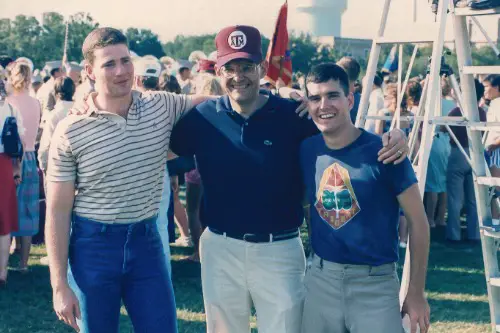
This phrase can sound mysterious—are they impressed or mocking you? In the Texas Hill Country, it’s usually both, and always with a grin. It’s often said when someone does something bold, clever, or just a little unexpected. The “somethin’” is open-ended on purpose, letting the tone do the talking.
Folks here value quick wit and colorful characters, so this greeting doubles as recognition of your personality. It’s a verbal pat on the back wrapped in a little mischief. Outsiders might be unsure how to respond, but locals know it’s safe to smile and play along. It’s as much a part of the conversation as “howdy.”
15. “Who let you in?” – Brooklyn, New York
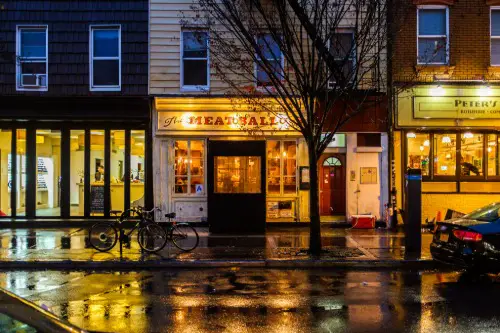
If you hear “Who let you in?” in Brooklyn, don’t worry—you haven’t trespassed. It’s a sarcastic but affectionate greeting for friends and regulars. The faux-suspicion is part of the borough’s proud, gritty charm. The real message is, “Glad you’re here—now sit down.”
Brooklynites are masters at disguising warmth as attitude. It’s part of the neighborhood banter, especially in tight-knit blocks or corner bars. If you get this greeting, you’ve crossed into insider territory. It’s the kind of welcome that says you belong, even if it sounds like a challenge.
16. “Look what rolled in” – Northern Rockies
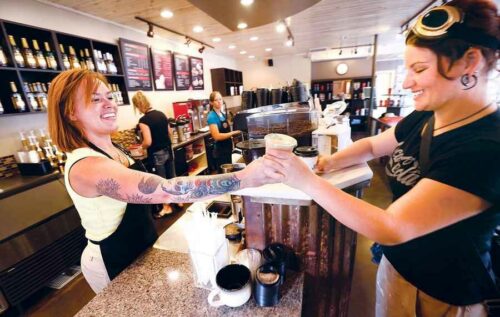
The phrase “Look what rolled in” can sound like you’ve arrived with a dust storm. In the Northern Rockies, it’s just a playful way to acknowledge your entrance. It’s popular in towns where weather and distance make social visits less frequent. The “rolled in” part suggests you’ve traveled some rough miles to get there.
This greeting pairs well with a handshake or a hearty clap on the back. It’s used at bars, hunting cabins, or even church gatherings. Locals like it because it’s a little dramatic but still friendly. It makes your arrival feel like a noteworthy event.
17. “You’re still alive?” – Rust Belt
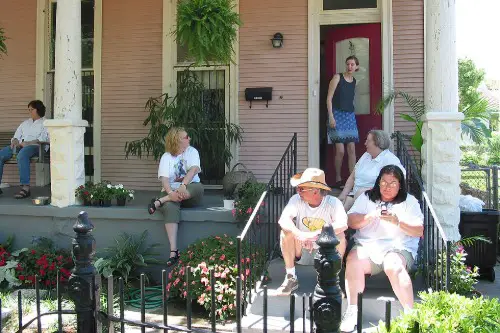
Hearing “You’re still alive?” might sound harsh, but in Rust Belt towns, it’s more reunion than insult. It’s a way to point out that it’s been far too long since you last crossed paths. The humor is a little dark, but it’s softened by a big grin. Underneath, it’s a statement of genuine relief and happiness.
This greeting reflects the region’s resilience and no-nonsense humor. People here don’t sugarcoat things, but they also don’t hide affection. If they’re joking about your continued existence, they care enough to have noticed your absence. It’s a steel-town hug—just with sharper edges.
18. “What’s this mess?” – Deep South

In most places, “What’s this mess?” could be a complaint. In the Deep South, it’s often a warm hello, especially if you’ve brought friends, food, or news. The “mess” refers more to the bustle and excitement you bring than to anything actually negative. It’s a greeting that blends curiosity with charm.
This turn of phrase comes from a culture that loves commotion as much as it loves storytelling. It’s less about disapproval and more about acknowledging life’s colorful moments. You’ll often hear it on porches, at backyard gatherings, or at Sunday dinners. It’s a playful way of saying, “Things just got more interesting.”
19. “Well, I’ll be” – Oklahoma Panhandle
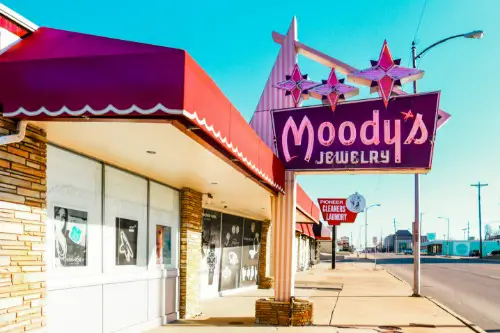
“Well, I’ll be” sounds unfinished, like the speaker forgot the rest of the sentence. But in the Oklahoma Panhandle, it’s a complete and enthusiastic greeting. It’s usually reserved for when someone shows up unexpectedly. The tone carries the surprise, while the words carry tradition.
This phrase has an old-time feel, handed down through generations of ranchers and small-town families. It’s equal parts nostalgia and sincerity. When you hear it, you’re being recognized as someone worth pausing for. It’s short, sweet, and packed with meaning.
20. “Look what the wind blew in” – High Desert Southwest
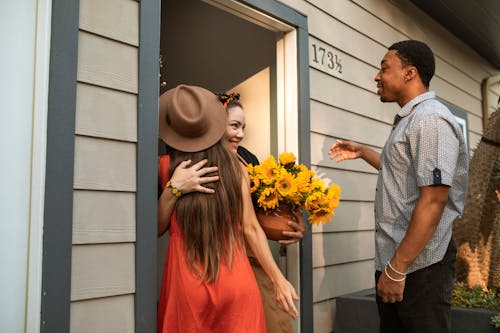
“Look what the wind blew in” might sound like you’ve been carried in by a dust storm. In the High Desert Southwest, that’s exactly the point—it’s a weather-inspired way of saying hello. It’s often used after long absences, with the “wind” hinting at distance and unpredictability. It’s friendly, colorful, and rooted in the local environment.
Desert towns and ranch communities have a knack for weaving nature into everyday speech. This greeting reflects both the landscape and the easy humor of the people who live there. It works best with a warm smile and maybe a little head shake. It’s a reminder that even in wide, open spaces, people notice when you arrive.
This post 12 Regional Greetings That Sound Like Insults but Aren’t (Usually) was first published on American Charm.


